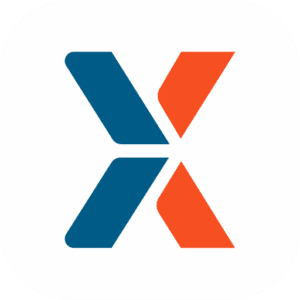Growing companies face a unique procurement challenge. They’re too large for spreadsheets but too small for enterprise software that costs more than their annual coffee budget. Mid-market organizations with 10-50 employees are discovering that QuickBooks-integrated procurement automation offers the sophisticated features they need without disrupting their existing financial systems.
The Mid-Market Procurement Dilemma
Mid-sized companies operate in a procurement sweet spot that’s surprisingly difficult to serve. They need enterprise-level features – complex approval workflows, budget controls, supplier management, and audit trails – but they also need the simplicity and affordability that keeps their existing QuickBooks accounting system running smoothly.
A recent evaluation by a mid-market company CFO articulated this challenge perfectly: “We need a system that can handle complex procurement policies with multiple approval levels, but it must integrate seamlessly with QuickBooks Online. We can’t afford to rebuild our entire financial infrastructure.”
This reflects a broader trend. According to recent data, 66.58% of businesses use QuickBooks for accounting, but most procurement solutions require abandoning this familiar system entirely. The result? Companies either stick with manual processes or invest in expensive enterprise software that disrupts their entire operation.
Complex Workflows in Simple Packages
Mid-market companies often need sophisticated procurement solutions that match their operational complexity:
Multi-Level Approval Chains: Purchase requests typically flow from employee → line manager → CFO → CEO, with approval authority based on spending thresholds and procurement categories.
Department-Wide Access: Teams of 10-50 people across multiple departments need system access, but with role-based permissions ensuring appropriate spending limits and approval authority.
Budget Control: Real-time budget tracking with automatic notifications when requests exceed remaining budget allocations.
Policy Enforcement: Automated enforcement of company procurement policies, including supplier rotation processes and contract requirements.
Mobile Accessibility: Managers need to approve purchases from anywhere, not just their desks.
These aren’t enterprise-level requirements – they’re standard needs for any growing company with multiple departments and spending accountability.
The QuickBooks Integration Advantage
What makes ProcurementExpress particularly suitable for mid-market companies is seamless QuickBooks integration that eliminates double data entry and maintains financial consistency.
Automatic Sync: Every approved purchase order automatically transfers to QuickBooks with proper account coding, eliminating manual data entry and reducing errors.
Invoice Processing: AI-powered invoice scanning reads supplier invoices directly from email, matches them against purchase orders, and routes them for approval – all while maintaining QuickBooks compatibility.
Real-Time Financial Data: Budget tracking uses live QuickBooks data, ensuring procurement decisions reflect actual financial position rather than outdated spreadsheet information.
Audit Trail: Complete transaction history maintains both procurement workflow records and QuickBooks audit requirements.
This integration approach lets mid-market companies maintain their existing financial processes while adding powerful procurement automation on top.
Implementation Reality: 15 Minutes to Full Operation
One of the strongest indicators of mid-market software success is implementation speed. Companies consistently report rapid deployment capabilities – with systems being completely customized for approval workflows and user roles while remaining operational within days, not months.
This matches feedback from similar implementations where companies report:
- 15-minute setup for complex projects
- Same-day user training across entire teams
- Immediate QuickBooks sync without data migration
- Custom workflow configuration without programming
Compare this to enterprise solutions requiring 6-18 month implementations, extensive consulting fees, and complete financial system overhauls.
Budget Control That Actually Works
Mid-market companies frequently need spending controls that prevent budget overruns while maintaining operational flexibility. Modern procurement solutions offer two effective approaches:
Soft Budget Controls: When requests exceed remaining budget, approvers receive clear notifications showing the overrun amount and can choose whether to approve based on business priorities.
Hard Budget Stops: Alternative configuration prevents any requests that would exceed budget limits, requiring budget adjustments before processing.
Real-Time Visibility: All approvers can see current budget utilization, outstanding commitments, and projected spending across departments and projects.
This granular control helps mid-market companies maintain financial discipline without bureaucratic approval bottlenecks.
Mobile-First Approach Drives Adoption
Mid-market companies can’t afford procurement bottlenecks caused by manager travel or remote work. Modern procurement solutions require mobile accessibility to drive user adoption and operational efficiency.
The mobile approach includes:
- Full feature parity between web and mobile applications
- Push notifications for pending approvals and budget alerts
- Camera integration for invoice scanning and receipt capture
- Offline capability ensuring approvals aren’t delayed by connectivity issues
This mobile-first design reflects how modern mid-market companies actually operate – with distributed teams, frequent travel, and expectation of immediate responsiveness.
The Customization Sweet Spot
Enterprise software often means expensive customization. Consumer tools mean accepting inflexible workflows. Mid-market companies need the middle ground: extensive customization capabilities that don’t require programming expertise.
Form Customization: Purchase request forms adapt to user roles, showing complex fields for senior managers while maintaining simplicity for general employees.
Approval Workflows: Unlimited approval chains with conditional routing based on spending amounts, departments, or project types.
Custom Fields: Additional data capture for project codes, cost centers, or compliance requirements without software modifications.
Reporting: Standard reports plus custom analytics for specific business metrics and compliance requirements.
User Roles: Granular permissions ensuring appropriate access without compromising security.
This level of customization typically costs tens of thousands in enterprise implementations but can be configured in hours for mid-market solutions.
Industry Applications Across Sectors
Mid-market companies across industries are implementing QuickBooks-integrated procurement automation to address similar challenges:
Professional Services: Law firms, accounting practices, and consulting companies managing client project spending with precise budget tracking.
Manufacturing: Small manufacturers needing supplier management, inventory controls, and production scheduling integration.
Healthcare: Medical practices and small healthcare systems managing equipment purchases, supplies, and regulatory compliance.
Construction: Project-based businesses tracking spending across multiple job sites with mobile approval capabilities.
Non-Profit: Organizations managing grant funding, donor restrictions, and board-level spending approval requirements.
The common thread: sophisticated procurement needs within QuickBooks-based financial infrastructure.
Looking Ahead: The Mid-Market Procurement Evolution
Recent evaluations by mid-market companies reflect broader trends toward procurement automation that doesn’t disrupt existing systems. Companies want enterprise capabilities without enterprise complexity or cost.
Key trends driving adoption:
Integration Over Replacement: Companies prefer solutions that enhance existing systems rather than replacing them entirely.
Mobile-Native Operations: Remote work and distributed teams require mobile-first design, not desktop-centric thinking.
AI-Powered Efficiency: Automated invoice processing and smart matching reduce manual work without requiring technical expertise.
Rapid Implementation: Days or weeks for deployment, not months or years.
Transparent Pricing: Predictable monthly costs without consulting fees, customization charges, or implementation surprises.
The Bottom Line
Mid-market companies are moving beyond spreadsheets without moving beyond QuickBooks. They need sophistication without complexity, customization without programming, and enterprise features without enterprise costs.
The sweet spot combines powerful procurement automation with familiar accounting integration, mobile accessibility with desktop functionality, and rapid implementation with extensive customization. For companies in this space, this represents the procurement automation they’ve been waiting for – finally built for businesses their size.
ProcurementExpress serves 764+ organizations with QuickBooks-integrated procurement automation. Companies interested in learning more about mid-market procurement solutions can schedule a personalized demonstration to see how customizable workflows, budget controls, and mobile accessibility work with their existing financial systems.




